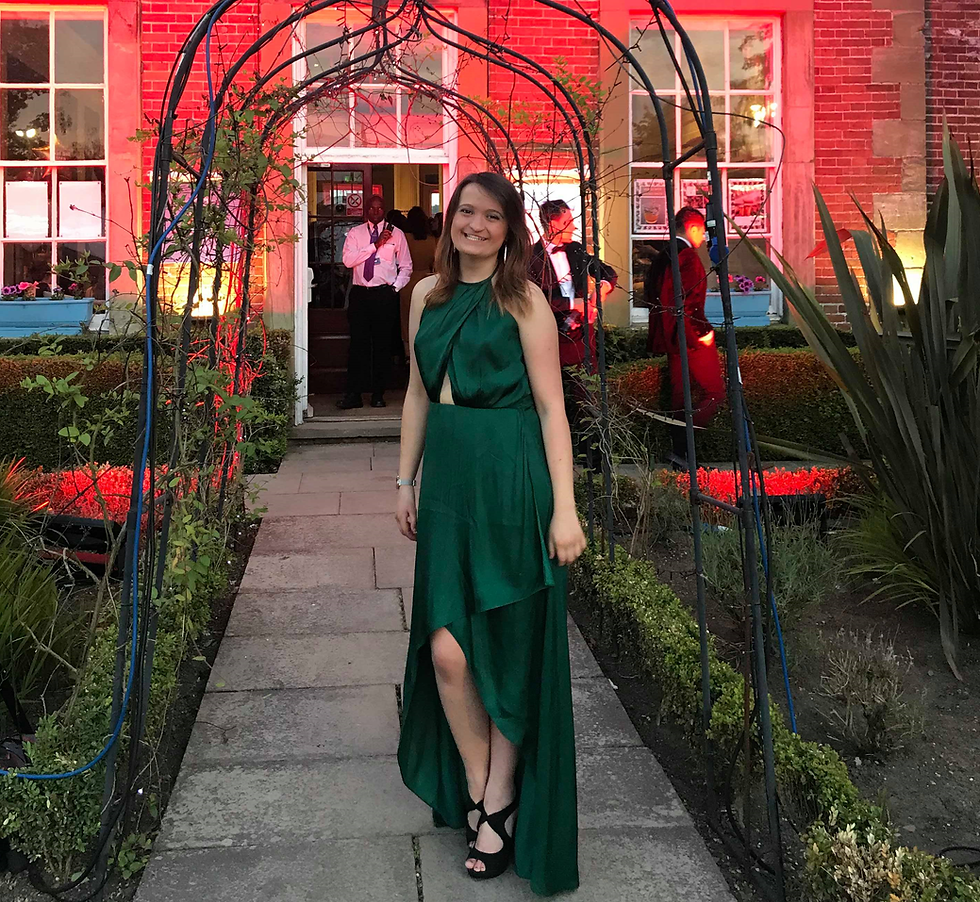What I Can't Remember
- Beth Angella
- May 17, 2017
- 3 min read

My parents didn’t know I was going to be born with a unilateral cleft lip and palate, so it was obviously quite a shock when I arrived. My cleft meant that my nose and mouth (palate) hadn’t grown properly when I was developing. The first two operations as a cleft patient were before my first birthday, so I have asked my mum to shed a little light onto my journey before I start to remember it myself.
She said that firstly, I had an op at three months to repair my lip and then another one at nine months to repair my palate. She found that at first my special bottle took some getting used to (since I couldn’t suck like other babies). It was made of soft plastic so the bottle could be gently squeezed to drip milk into my mouth where I would lap it up ‘like a kitten’. The nurse at the special care unit told my parents they’d soon get the hang of it and would be feeding me without having to pay special attention to technique after a few weeks. Although at first they found this hard to believe, they soon relaxed and felt comfortable feeding me like any other baby. For me, it was my only experience of taking milk so it probably felt very normal, and I certainly gained weight as any baby should do.
There were obvious apprehensions about my coming operations, but my parents knew they would be for the best. After the op, my mum says it was almost odd seeing me at the hospital because everyone had grown to love me the way I was born, so the change felt a little unnerving. However, I was soon smiling again (despite my arms being in splints to stop me bending my elbows to touch my mouth). When my parents took me out after my surgery, people would be so concerned about my arms that they didn’t even notice my mouth!
My mum initially found it quite hard, even just to go to the supermarket, because everyone wants to look at a new-born and she’d be waiting for the shock when people would look in the pram. But mum pushed through her own worries about other people’s reactions and decided that she shouldn’t be stopped from doing everyday motherly activities with me in public, and that if people did react it became the perfect opportunity to educate them about cleft. She knew it was only human nature to be curious about differences, and decided to embrace the challenge of answering people’s questions/stares. Nowadays with charities like CLAPA and Smile Train, people are often more aware of cleft and what it is, so this should help to make new parents feel more confident in enjoying their new baby and embracing the differences and challenges of a cleft.
My parents had worries about my hearing too so I was taken to have hearing tests, but luckily there has never been any issues. And whilst it’s a possibility that cleft patients may need speech therapy, I was lucky enough to never need this either.
My mum’s overall view is incredibly positive. Yes, it’s a waiting game and it can be very tough. But ultimately, having a child with a cleft is about embracing what’s happened, and using it to positively look at the world – whether that’s to appreciate your happy baby or see them as a way of pushing yourself outside of your comfort zone and educating people about accepting and respecting differences. Fundamentally, having a child with a cleft does what any baby does – they give you happiness, resilience and love.


